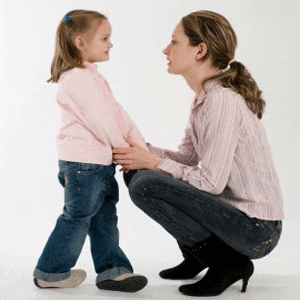Homeopathy is an alternative medicine practice that uses highly diluted natural substances to activate the body’s self-healing mechanisms. Developed in the late 18th century by a German physician Dr. Samuel Hahnemann, it operates on the principle of “like cures like.” This means that a substance causing symptoms in a healthy person can treat similar symptoms in a sick person.
Homeopathic remedies are derived from plants, minerals, and animal products. These substances undergo a process of dilution and vigorous shaking, known as succussion, to create the final remedy. Interestingly, the more diluted the remedy, the more potent it is considered to be. Practitioners select treatments based on the individual patient’s unique physical, emotional, and mental symptoms. In this article, we’ll explore how homeopathy can help your child, why you might consider it, and when it might not be the best choice. We’ll also clear up some common myths about homeopathy for kids.
How does homeopathy work for children?
Homeopathy is a good choice for treating kids’ health problems. Kids often feel better very quickly when they take homeopathic medicine. This medicine is gentle, safe, and won’t cause any side effects like other medicines can.
Homeopathy helps your child’s body heal itself. It makes your child’s own defenses stronger so they can fight off sickness and feel better. The doctor will look at your child’s whole body, not just their cough or tummy ache. They’ll also consider how your child feels and what they’re like in general. This way, the medicine can target the real problem, not just make the symptoms go away. Homeopathy can help with many things that make kids sick, like colds and the flu.
Common ailments treated with homeopathy for children
Homeopathy can be used to treat a wide range of childhood health concerns, including:
- Colds, flu, and other respiratory infections
- Ear infections
- Sore throats
- Coughs
- Fevers
- Digestive issues like diarrhea, constipation, and colic
- Skin conditions like eczema, acne, and warts
- Allergies and hay fever
- Behavioral and emotional issues like anxiety, ADHD, and sleep problems
- Injuries and trauma
- Teething and other dental problems
Homeopathic remedies can be used both to address acute, short-term illnesses and to support long-term, chronic health conditions in children.
Homeopathic remedies for common childhood illnesses:
Here are some examples of common homeopathic remedies used to treat childhood illnesses:
| Illness | Homeopathic Remedy |
| Colds and flu | Aconitum, Belladonna, Gelsemium, Bryonia |
| Ear infections | Pulsatilla, Chamomilla, Mercurius |
| Sore throats | Belladonna, Mercurius, Lachesis |
| Coughs | Drosera, Ipecacuanha, Spongia |
| Digestive issues | Nux vomica, Pulsatilla, Arsenicum album |
| Skin conditions | Sulphur, Graphites, Calcarea carbonica |
| Behavioral/emotional issues | Ignatia, Phosphorus, Calcarea phosphorica |
Warning! Don’t give your child any medicine you find online, even if it’s homeopathy or regular medicine (allopathy). Always talk to a doctor or someone who knows about homeopathy first. They can help you pick the right medicine for your child’s health problems.
Homeopathy vs. conventional medicine for children
When it comes to treating common childhood health issues, there are some important differences between homeopathy and conventional medicine:
| Aspect | Homeopathy | Conventional Medicine |
| Approach | Aims to treat the whole person and their symptoms. | Focuses on diagnosing and treating specific conditions. |
| Treatment | Uses very diluted substances believed to trigger the body’s healing response | Uses medications, procedures, and therapies with established scientific effects |
| Side Effects | Generally considered low risk, but some may experience a temporary worsening of symptoms | Medications may have side effects, which vary depending on the drug |
| Chronic Conditions | May be helpful for some chronic conditions, but evidence is limited | Can manage some chronic conditions and may cure others |
| Safety | Generally safe for children, but consult a qualified practitioner | Safety and appropriate use vary depending on the medication and child’s age |
| Complementary Use | May be used alongside conventional medicine, but discuss with both practitioners | May be used alongside homeopathy, but discuss with both practitioners |
How to take care of your child’s health with homeopathy?
Homeopathy can be a great addition to how you take care of your child’s health. It can work alongside regular doctor visits to give your child the most complete care possible. Here are some tips to get started:
- Talk to all the doctors: Let your child’s regular doctor know about any homeopathic treatments you’re using. This way, everyone can work together to make the best plan for your child.
- Start small: Try homeopathy first for short-term problems like colds, the flu, or bumps and bruises. This will help you see how it works before trying it for bigger issues.
- Think long-term: Once you find a homeopathic doctor you trust, you can talk about treatments that address any ongoing health problems your child might have.
- Be patient: Homeopathy might take a while to work. Stick with it and follow the doctor’s advice. Don’t keep switching remedies.
- Healthy habits: Homeopathic doctors often recommend things like healthy eating and exercise to help your child stay well overall.
- Change it up: As your child grows, their needs might change. Be open to adjusting their homeopathic treatment plan along the way.
Safety and precautions when using homeopathy for children:
Homeopathy is generally safe and gentle for children, but some important precautions should be observed:
- Consult a Qualified Practitioner: Always work with a trained and experienced homeopathic practitioner to ensure proper selection and administration of remedies for your child.
- Avoid Self-Medication: Do not self-prescribe homeopathic remedies for your child without professional guidance, as improper use can be harmful.
- Inform Your Child’s Doctor: Notify your child’s conventional healthcare providers about any homeopathic treatments being used to avoid potential interactions with other medications or therapies.
- Monitor for Reactions: While homeopathic remedies are non-toxic, monitor your child for any temporary worsening of symptoms or mild reactions during the healing process and report concerns to your homeopath.
Seek Conventional Care for Serious Conditions: Homeopathy should not replace conventional medical treatment for serious, life-threatening, or rapidly progressing conditions. Always seek appropriate emergency or conventional medical care when necessary.


